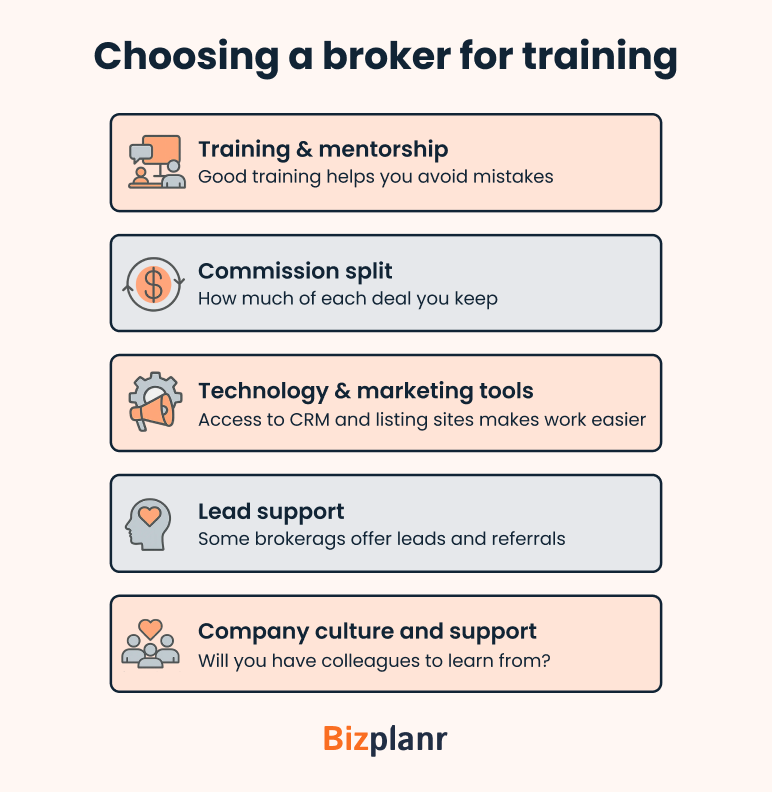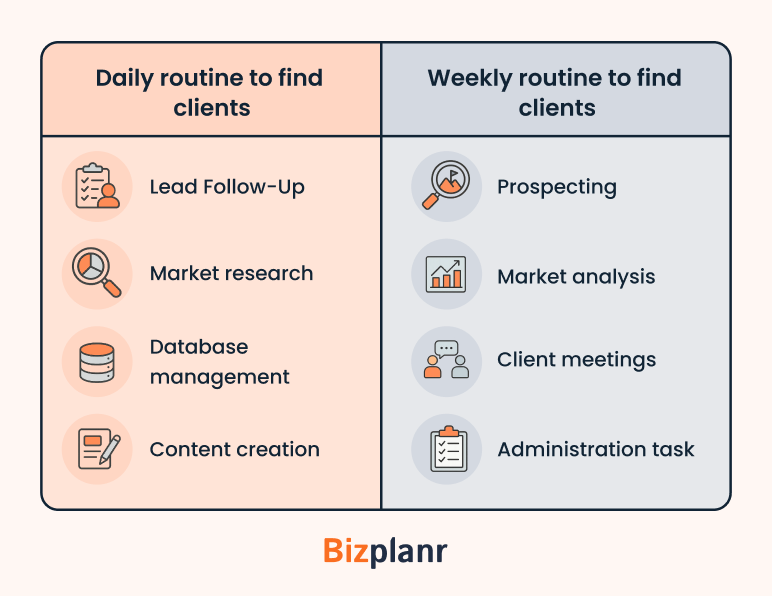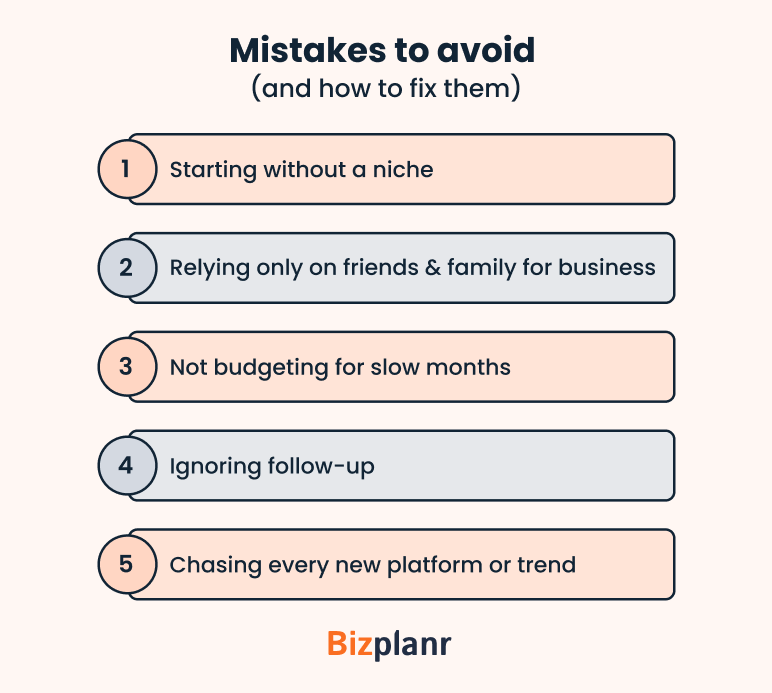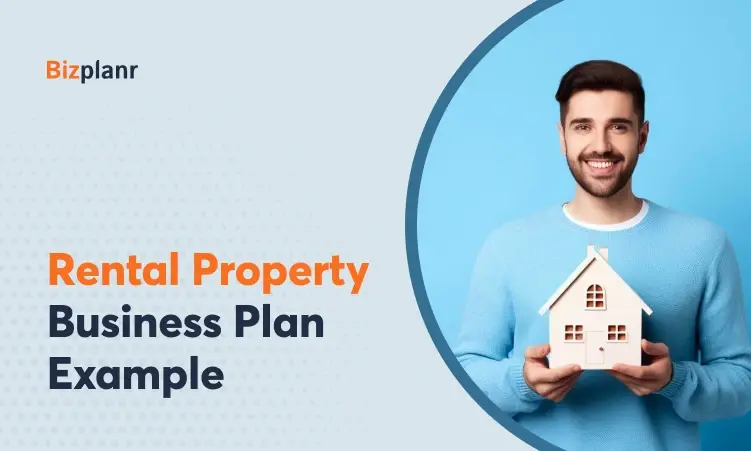They say the three most important things in real estate are location, location, and location. But what about the fourth most important thing? Knowing how to start a real estate business without losing your shirt or your sanity.
If you've ever walked through an open house and thought, "I could do this job," you're probably right. Real estate isn't rocket science, but it does require more than just a charming smile and the ability to say "cozy" instead of "cramped."
From getting licensed to landing your first client, the path to real estate success is paved with more than good intentions. Ready to turn your property passion into profit? Here's your roadmap to building a thriving real estate empire.
Let’s dive in.
Key Takeaways
- Starting a real estate business in the U.S. typically costs $400-$2,700+, depending on your state, licensing fees, marketing, and business setup.
- Real estate isn’t a single business—it’s a collection of different businesses working under one industry roof, like residential sales, commercial leasing, and real estate investing.
- A simple business plan is essential for clarity and long-term direction in the real estate business.
- Success in real estate comes from consistency, relationship-building, and smart lead generation
Step 1: Decide your real estate focus
Here's the truth: "I want to do real estate" isn't specific enough to build a business around. Real estate isn’t one business; it’s many small businesses under one big roof.
Each one works differently, with its own income style, risks, and licenses. Here’s a table to help you understand your options clearly:
| Type of Business | What You'll Do | License Needed | Income Potential | Startup Cost |
|---|---|---|---|---|
| Residential Sales | Help people buy and sell homes | Yes | Medium to High | Low to Medium |
| Commercial Sales | Handle offices, shops, factories, sales, and leases | Yes (Advanced) | High | Medium to High |
| Property Management | Manage rentals, collect rent, and handle repairs | Yes (Varies) | Medium, Recurring | Low |
| Wholesaling | Find good property deals, sell contracts to buyers | No | Medium | Very Low |
| Real Estate Investing | Buy properties yourself to rent or sell for profit | No (but helpful) | High | High |
| Mix of Above | Combine two or more business types | Depends | Medium to High | Varies |
Pick one primary focus to start. You can always expand later, but trying to do everything simultaneously leads to marketing confusion and makes it harder to build expertise.
Step 2: Understand your state’s licensing and legal setup
Before you start dealing in properties, you need to get legally sorted. Real estate is a serious business, and every state has different rules.
Let’s break down the licensing requirements in simple, practical steps for you. If you plan to work as an agent representing buyers or sellers, you’ll need to complete the following process:
- Complete your state's pre-licensing course (usually 40-180 hours)
- Pass the state real estate exam
- Apply for your license through the state real estate board
- Pay licensing fees and submit a background check
If you're focusing on investing or property management without acting as an agent:
- You might not need a real estate license
- But you'll still need a proper business structure and permits
Getting your business legally set up is just as important as getting your real estate license. Thus, here’s the essential legal process for your real estate business:
| Setup Item | Why It Matters |
|---|---|
| LLC (Limited Liability Company) | Separates personal and business assets, reducing risk. |
| EIN (Employer Identification Number) | Required for taxes and opening a business bank account. |
| Business Bank Account | Keeps your personal and business money separate and organized. |
| Local Permits & Registrations | Needed if you open an office or manage properties. |
| Operating Agreement (if LLC) | Rules about how your business will run internally. |
Step 3: Build a simple real estate business plan
A business plan helps you stay focused, save time, and avoid wasting money on random ideas. It’s a living document that aids you with decision-making when opportunity knocks at 9 PM (and it will), you know instantly whether to say yes or pass.
Here’s what you must include:
| Things to include | Why It Matters |
|---|---|
| Who you'll serve | Choose your target clients—families, shop owners, investors, or landlords. |
| How you'll get clients | List ways you'll find deals—online ads, local signs, referrals, or property portals. |
| What tools you use | Pick tools like CRM, property listing sites, Google Maps, and accounting software. |
| How you'll make money | Decide your income style—commissions, management fees, rental income, or property flips. |
| Your business goals | Set clear short-term and long-term targets—deals per month, income goal, or property purchases. |
| Budget for expenses | List startup costs—licensing, marketing, fuel, tools, office rent, and networking events. |
Without a business plan, you’ll chase deals blindly and burn money on useless things. Hence, write it down even on one page and expand it as you learn what works in your market.
If you’re unsure where to begin or what to include in your business plan, you can use ready-to-use real estate business plan templates. It not only guides you through the process but also saves time and keeps your strategy organized.
Get Your Business Plan Ready In Minutes
Answer a few questions, and AI will generate a detailed business plan.
Step 4: Calculate startup costs (even if you’re starting lean)
Before you open doors for business, you need to know how much it’ll cost to get started.
Many people jump in without counting the costs, and then get stuck halfway. Real estate isn’t free to start, but you can control where you spend, especially in the beginning.
So let’s break down what typical early expenses look like if you’re starting a real estate business.
| STARTUP COMPONENT | APPROXIMATE COST | PAYMENT TYPE |
|---|---|---|
| Pre-Licensing Course | $300 – $800 | One-time |
| Real Estate License Exam & Application | $100 – $300 | One-time |
| MLS (Multiple Listing Service) Access | $20 – $60 | Monthly |
| Brokerage Joining Fees | $500 – $2,000 | One-time |
| Business Cards & Marketing Materials | $50 – $200 | One-time |
| CRM or Lead Management Tools | $20 – $100 | Monthly |
| Signage, Flyers, and Local Ads | $200 – $1,000 | Campaign |
| Office Space (Optional) | $500+ | Monthly |
| Total Initial Investment Range* | $1,670 – $4,460 | *Excluding optional office space |
Now, if you’re tight with money and wondering how to start a real estate business with no money, don’t worry—it’s possible with smart moves.
- Skip office rent—Work from home or coffee shops initially
- Use referral networks instead of paid advertising
- Start with free CRM tools like HubSpot or Google Sheets
- Focus on digital marketing before printed materials
- Partner with established agents for training and mentorship
Step 5: Choose your brokerage (if you need one)
Here’s something important many beginners overlook—you can’t practice real estate on your own right after getting licensed.
In most U.S. states, if you’re a new agent, you legally need to work under a licensed real estate broker. A brokerage is like your business home base. It’s where you’ll hang your license, get support, and close deals.
Hence, don’t rush this step; the right brokerage can shape your entire career. Here’s what you should consider before picking one:
Sometimes, a 60/40 split with excellent training and lead support beats a 90/10 split where you're completely on your own. Early in your career, education and support often matter more than maximizing commission percentage.
Step 6: Set up branding and lead generation tools
Once your license and brokerage are sorted, it’s time to make people notice you. You don’t need to build a fancy brand overnight—just cover the basics well and stay consistent.
Start with these branding essentials:
- Business Name: Make it clear what you do. "Smith Real Estate" works better than "Smith Enterprises" for building immediate trust.
- Domain and email: Get a professional domain (yourname.com or yournameproperties.com) and a matching email address..
- Simple logo: Keep it clean and readable. A text-based logo with good typography often works.
- Google business profile: This is crucial for local search. Include your photo, contact info, services, and encourage satisfied clients to leave reviews.
- One-page website: You don't need a complex site initially. Include your photo, services, contact information, and a few client testimonials.
- CRM system: Start tracking every lead from day one. Free options like HubSpot work fine initially, but upgrade as your business grows.
- Social media: Pick 1-2 platforms maximum. LinkedIn works well for commercial real estate, Instagram for residential, and Facebook for community engagement.
Step 7: Build a routine for finding and serving clients
Real estate isn’t a job where you sit and wait for calls. It’s a business where you need daily habits to find, serve, and keep clients coming back. The more active you stay, the more doors you open—both for deals and opportunities.
Here’s what you should be doing every day:
- Lead follow-up: Contact new leads within 24 hours and stay in touch with existing prospects.
- Market research: Check new listings, price changes, and sold properties in your target areas.
- Database management: Update your CRM with new contacts, notes from conversations, and follow-up reminders.
- Content creation: Write social media posts, email newsletters, or blog articles that provide value to your audience.
For weekly activities:
- Prospecting: Dedicate time to finding new leads through personalized cold calling, door-knocking, online outreach, or networking events.
- Market analysis: Prepare comparative market analyses (CMAs) for potential listings and stay current on market trends.
- Client meetings: Schedule and conduct listing presentations, buyer consultations, and property showings.
- Administrative tasks: Handle contracts, coordinate with lenders and inspectors, and manage transaction details.
This business rewards consistency and systems. If you build daily habits, you’ll always have deals in the pipeline. Stay visible, stay reachable, and serve well. Trust builds slowly, but it’s priceless once earned.
Step 8: Stay legally and financially compliant
No matter how good you are at selling homes or finding deals, if your business isn’t clean, it won’t last. Real estate has strict legal, tax, and record-keeping rules you must follow. And trust me—it’s easier to stay organized from day one than fix problems later.
You’ll handle money, contracts, and people’s life savings. So the law expects you to run things properly. Hence, follow the mentioned tasks carefully to keep your business legal, safe, and trustworthy.
- Record all income, expenses, and mileage.
- Use your business bank account for all business expenses.
- Save 25-30% of your commission income for taxes.
- Get E&O (Errors & Omissions) insurance.
- Renew your license regularly.
- Follow all disclosure laws honestly
- Keep personal and business funds separate.
- Treat each property like its own mini-business.
Clean paperwork builds clean money. Stay organized, and you’ll avoid stress, fines, and future regrets.
Step 9: Track performance and improve
In real estate, if you don’t track what’s happening, you won’t know what’s working.
And when things slow down—which they sometimes will—you’ll need clear numbers to fix it. This isn’t about fancy reports. Just track a few simple things every week. Trust me, it’ll show you where to focus.
Start by monitoring your lead activity. Keep a record of how many new leads you’re generating each week, where they’re coming from, and how much they’re costing you (if you’re running paid ads). Identify which channels deliver the highest quality leads at the best price.
Then, stay on top with sales activity:
- Listing presentations delivered
- Buyer consultations completed
- Properties shown
- Offers written and accepted
Finally, keep an eye on your business results. Here’s a quick view:
| Business Metric | Why It Matters |
|---|---|
| Listings Taken | Tells you how many clients you're signing. |
| Properties Sold | Shows your deal-closing results. |
| Commission Earned | Keeps track of your income. |
| Average Days on Market | Helps measure pricing and market fit. |
When things slow down in real estate, here’s what you should try to improve:
1) Test new approaches
Try different email subject lines, social media post formats, or networking events. Small improvements compound over time.
2) Seek feedback
Ask clients about their experience and what you could have done better. Exit interviews with prospects who didn't work with you provide valuable insights.
3) Invest in education
Attend workshops, read industry publications, and learn from successful agents in your market.
4) Update systems
As your business grows, upgrade your tools and processes. What works for 5 clients per month might not work for 15.
5) Track leading indicators
Focus on activities you control (calls made, emails sent, open houses held) rather than just results (closings, commission earned).
5 Mistakes to avoid (and how to fix them)
Starting a real estate business comes with its fair share of challenges, especially in the first year. The good news is, with a little awareness and the right fixes, you can sidestep these early pitfalls and stay on track.
1) Starting without a niche
Jumping into real estate without choosing a clear market makes it harder to build trust or get consistent leads.
Fix: Pick one niche—like first-time homebuyers, commercial spaces, or rental management—and stick with it for 6–12 months.
2) Relying only on friends and family for business
Your personal network dries up fast, and you’ll run out of leads.
Fix: Build systems to connect with new people—use ads, open houses, FSBO lists, and local networking.
3) Not budgeting for slow months
Some months, deals will be slow, and bills won’t wait.
Fix: From day one, set aside 3–6 months of personal and business expenses to stay safe during quiet periods.
4) Ignoring follow-up
Most deals are lost because agents forget to check back with warm leads.
Fix: Use a simple CRM or Google Sheet, and block time daily for follow-ups and check-ins.
5) Chasing every new platform or trend
Jumping on every new social app, ad tool, or trendy tactic will drain your time and budget.
Fix: Focus on 2–3 proven channels in your market and work them consistently.
Bottom line
Reaching this point means you’re serious about building a real estate business the right way. With a clear roadmap now in hand—from choosing your niche to setting up systems and lead generation—you’re ready to take the next step. Before jumping in, it’s wise to outline your goals, budget, and marketing strategy in a simple business plan.
It’ll give you clarity, keep your efforts organized, and help avoid the common pitfalls new agents face. If you need a quick starting point, resources like Bizplanr can make the process easier.
Remember, real estate isn’t about shortcuts; it’s about consistent work and smart planning. Stay focused, track your progress, and your first successful deal will be closer than you think.
Get Your Business Plan Ready In Minutes
Answer a few questions, and AI will generate a detailed business plan.
Frequently Asked Questions
How much does it cost to start a real estate business?
It typically costs between $400-$2,700 or more in the U.S. for licensing, marketing, and tools, depending on your state and business style.
Can I start a real estate business without becoming an agent?
Yes, you can—people invest, flip homes, wholesale deals, or manage rental properties without a license.
Do I need an office to start a real estate business?
No, you don’t need a fancy office in the beginning—you can easily work from home, a coffee shop, or a co-working space. Clients care about your service and deals, not where you sit to answer calls.
How long does it take to become profitable in real estate?
On average, it takes 6 to 12 months to start making steady income, depending on how consistent you are with lead generation.








